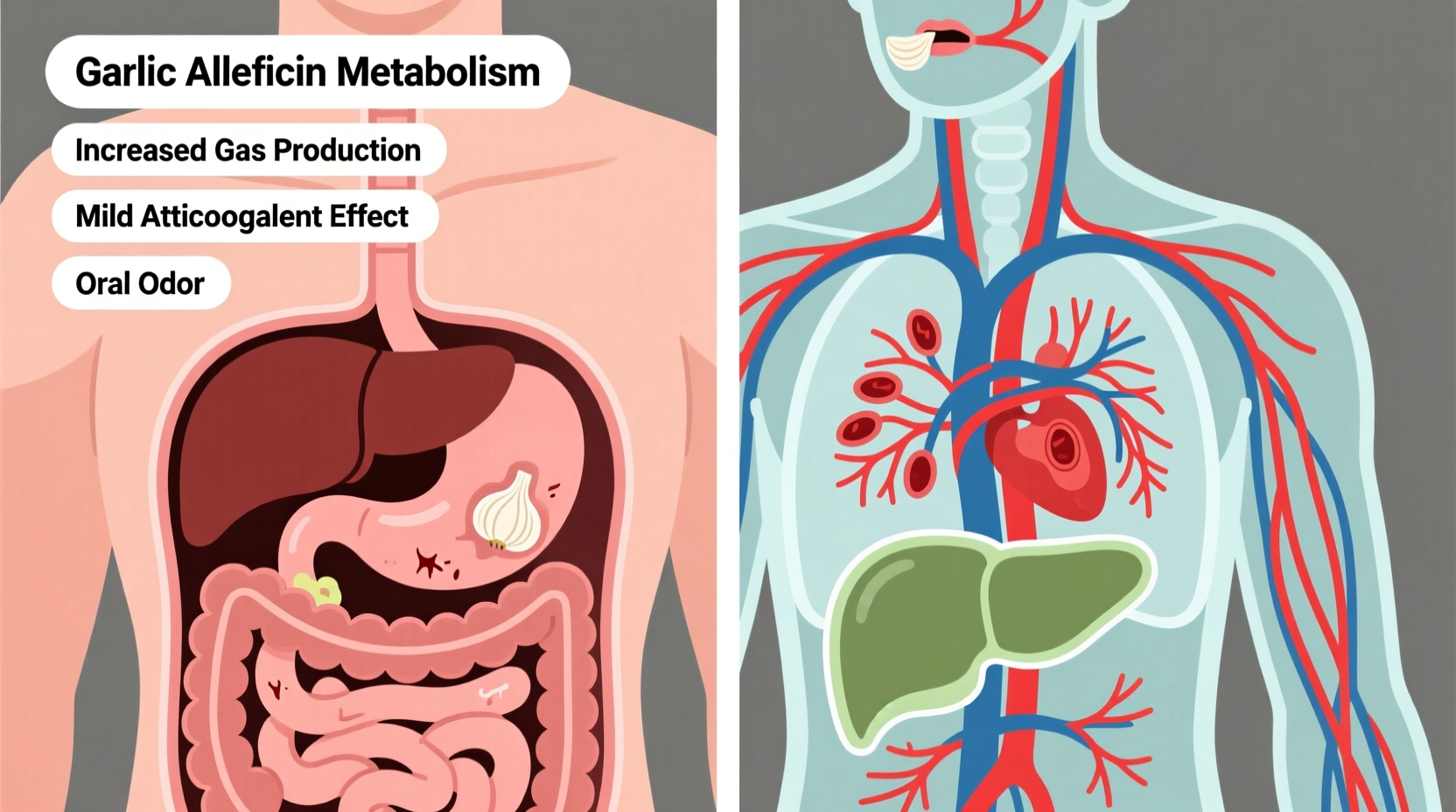Garlic side effects typically include bad breath, body odor, heartburn, and digestive issues. Serious reactions like bleeding complications or allergic responses are rare but possible, especially with supplements or high consumption. People taking blood thinners or scheduled for surgery should consult their doctor before consuming large amounts of garlic.
When you enjoy garlic in your cooking, you're probably unaware of how your body processes this potent bulb. While garlic offers impressive health benefits, understanding its potential side effects helps you enjoy it safely. This guide delivers evidence-based information about garlic reactions, backed by medical research from authoritative health institutions.
Immediate Physical Reactions You Might Experience
Most garlic side effects appear within hours of consumption and affect your digestive system and breath. The sulfur compounds responsible for garlic's health benefits also cause these common reactions:
- Halitosis (garlic breath) - Persists for up to 72 hours after consumption
- Body odor - Sulfur compounds excreted through skin pores
- Heartburn or acid reflux - Especially in people with GERD
- Gas and bloating - From increased digestive activity
- Nausea - Typically with raw garlic on empty stomach
These reactions usually subside within 24-48 hours as your body processes the compounds. Cooking garlic reduces but doesn't eliminate these effects.
Garlic Consumption: Fresh vs. Supplement Comparison
| Factor | Fresh Garlic | Garlic Supplements |
|---|---|---|
| Allicin Content | Varies (highest when crushed raw) | Standardized doses (often higher) |
| Digestive Impact | Moderate (depends on preparation) | Often more severe |
| Bleeding Risk | Minimal with culinary use | Significantly higher |
| Allergy Potential | Lower | Higher (due to concentrated compounds) |
| Recommended Maximum | 1-2 cloves daily | Follow label instructions |
When Garlic Side Effects Become Serious
While most reactions are merely inconvenient, certain situations require medical attention. The National Center for Complementary and Integrative Health (NCCIH) identifies these serious garlic side effects:
- Bleeding complications - Particularly dangerous for people taking anticoagulants like warfarin (Coumadin) or before surgical procedures. Research published in Phytotherapy Research shows garlic can increase bleeding time by up to 15%.
- Allergic reactions - Symptoms include skin rash, swelling, difficulty breathing, or anaphylaxis in severe cases. The American College of Allergy, Asthma, and Immunology confirms garlic allergy affects approximately 1-2% of the population.
- Low blood pressure - Problematic for people already taking hypertension medication.
- Drug interactions - Particularly with HIV medications, blood thinners, and some birth control pills.
If you experience severe symptoms after consuming garlic, contact your healthcare provider immediately. The FDA has issued warnings about potential interactions between garlic supplements and certain medications.
Who Should Be Cautious with Garlic?
Certain populations face higher risks from garlic consumption. Understanding these context boundaries helps you make informed decisions:
- People scheduled for surgery - Stop consuming garlic supplements at least 7-10 days before procedures due to bleeding risk (per Mayo Clinic guidelines)
- Individuals on blood thinners - Consult your doctor before consuming large amounts
- Pregnant or breastfeeding women - Culinary amounts are generally safe, but supplements lack sufficient safety research
- People with IBS - Garlic contains FODMAPs that can trigger symptoms
- Those with garlic allergy - Complete avoidance necessary
Managing Garlic Side Effects Effectively
Most garlic reactions can be managed with simple strategies:
- For bad breath - Chew fresh parsley, mint, or apples after meals containing garlic
- For digestive issues - Consume garlic with food rather than on empty stomach
- To reduce odor - Drink lemon water or milk with meals containing garlic
- When taking supplements - Choose enteric-coated versions to minimize digestive upset
- For medication interactions - Maintain consistent garlic consumption patterns and discuss with your pharmacist
Remember that individual tolerance varies significantly. Start with small amounts and gradually increase to assess your personal reaction.
Garlic Benefits vs. Risks: Finding Balance
For most people, the health benefits of moderate garlic consumption outweigh potential side effects. The World Health Organization recognizes garlic's cardiovascular benefits while acknowledging its potential for adverse reactions. When used appropriately, garlic remains a valuable component of a healthy diet.
Consider these evidence-based recommendations:
- Limit to 1-2 cloves of fresh garlic daily for culinary use
- Consult your doctor before taking supplements if you have health conditions
- Avoid raw garlic on empty stomach if you have sensitive digestion
- Discontinue supplements before surgery as directed by your physician

When to Consult a Healthcare Professional
While most garlic reactions are temporary and mild, seek medical advice if you experience:
- Prolonged bleeding from minor cuts
- Severe digestive distress lasting more than 48 hours
- Skin reactions or breathing difficulties
- Unexplained interactions with medications
Your healthcare provider can help determine whether your symptoms relate to garlic consumption or indicate other health concerns.











 浙公网安备
33010002000092号
浙公网安备
33010002000092号 浙B2-20120091-4
浙B2-20120091-4